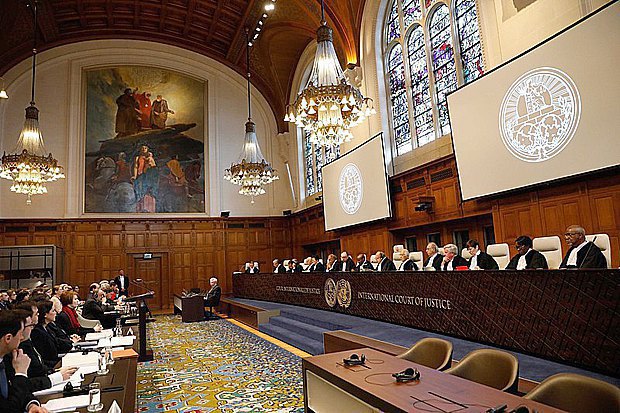
On 6-9 March, the International Court of Justice held hearings on Ukraine's motion to introduce provisional measures against Russia in the case of the " Application of the International Convention for the Suppression of the Financing of Terrorism and the International Convention on the Elimination of All Forms of Racial Discrimination".
It should be taken into account that the hearing and Ukraine's big lawsuit filed with the International Court of Justice (16 January 2017) to bring the Russian Federation to justice for supporting terrorism and discriminating against ethnic Ukrainians and Crimean Tatars in temporarily occupied Crimea - because Russia violated two applicable conventions (The International Convention for the Suppression of the Financing of Terrorism of 1999 and the International Convention on the Elimination of All Forms of Racial Discrimination of 1969) - are two different actions.
These two cases (provisional measures of protection and the main lawsuit) are being heard separately, although they are indirectly related.
Ukraine asked the court to apply provisional measures to Russia to tie the Kremlin's hands in the international arena: the international community's influence on Moscow is expected to prevent further escalation of the situation and the deterioration of security in eastern Ukraine, at least for the period of general consideration of the lawsuit.
What Kyiv expects from "provisional measures"
Will a court decision have practical effect and Russia immediately stop conducting warfare in Ukraine's Donbas and arming local terrorists? Hardly.
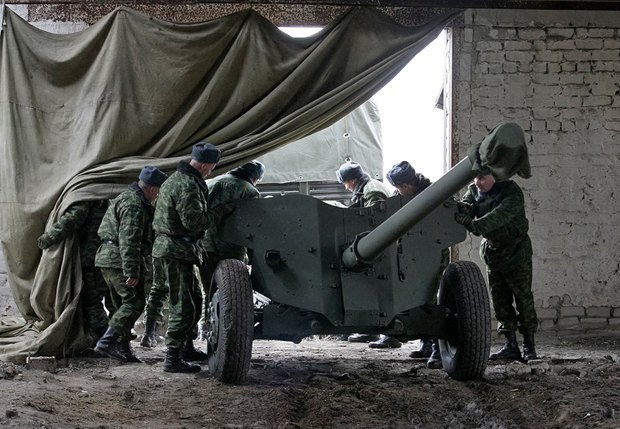
However, a positive decision of the International Court of Justice in regard to provisional measures is primarily of moral, psychological and ideological significance to Ukraine since it will send a good signal: the court is ready to accept the arguments of the Ukrainian side in the future consideration of Ukraine's main lawsuit against Russia in The Hague.
In practice, it is very important for Kyiv to secure a decision of the International Court of Justice, which will be legally binding for Russia (it will have to stop supporting illegal armed groups, providing arms supplies, etc.). In this case, the Ukrainian side will closely monitor the implementation of the ruling, and if the Russian Federation does not stop, each time Kyiv will appeal to the court and highlight Russian violations.
At the same time, it should be understood that for both sides the court will set mutual requirements (for example, ceasefire, etc.). Therefore, we should be getting ready for the Kremlin's information campaign to discredit Ukraine, which will accuse Kyiv of "violating" the court's ruling.
The International Court of Justice is expected to decide on Ukraine's request for provisional measures within a month and a half, thus we may even learn about it as soon as in April.
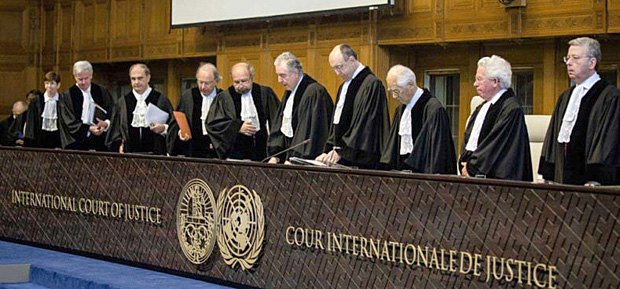
In theory, there are three solutions:
- The court decides in favour of provisional measures;
- The court decides in favour of provisional measures to an extent that is different from what Ukraine insisted upon;
- The court decides against provisional measures for Russia.
But even the third (negative) scenario will not affect the further consideration of Ukraine's big lawsuit against Russia. However, we need to understand that in this case the Ukrainian side will have to take better care preparing evidence of Russian crimes in Ukraine's Donbas and Crimea.
This big process will begin when its participants (Ukrainian and Russian delegations) are invited to The Hague and the court announces its conclusions on the consideration of Ukraine's motion for provisional measures of Russia.
Then the court will brief the parties on the time schedule for the preparation and submission of the necessary procedural documents. After that, the Ukrainian side will be given nine months to prepare a relevant memorandum. The Russian side will have the same amount of time to prepare its document. And only then will oral hearings be held, which will last for nine months as well.
Thus, the full consideration of the case will take 2.5 years.
Arguments / counterarguments
The hearings held in March in the International Court of Justice on the lawsuit of Ukraine on the introduction of provisional measures of protection exposed Russia's defence tactic.
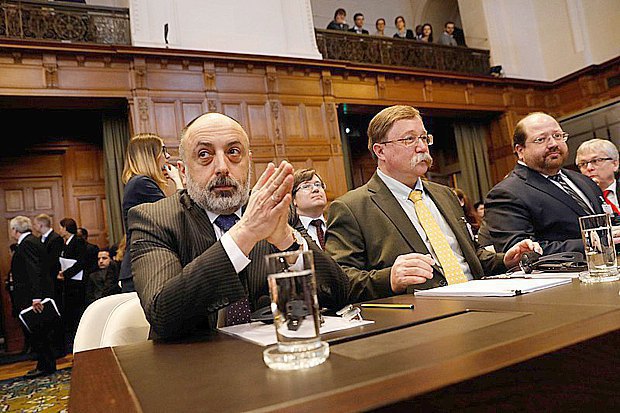
First, it exposed disagreements between the parties about the International Convention for the Suppression of the Financing of Terrorism as regards the law and facts. In particular, Russia insisted that this convention is not applicable to the case because the situation in eastern Ukraine allegedly mostly concerns humanitarian law not the responsibility of states.
The Ukrainian side, for its part, tried to prove that the same people can fight against the military and kill civilians (using the example of Islamic State).
Second, Russia accused Kyiv of "putting tags" on the people of Donbas by calling them terrorists since no-one in the world thinks they are terrorists, but Ukraine. Also, the death toll of civilians in the temporarily occupied territory is higher.
Third, the Russian delegation traditionally described the situation in the historical context: "the junta scored victory in Kyiv – the Donbas people got scared – then they mobilized and armed themselves". Thus, it only concerns humanitarian when "the people are fighting the junta".
Fourth, Russia attempted to prove that provisional measures would be unreasonable as "they would contradict the Minsk process". The Ukrainian delegation, for its part, argued that "even the state is forced to negotiate with terrorists".
Fifth, the Russian side made active use of reports by the OSCE Special Monitoring Mission (SMM), the Human Rights Commissioner, the Red Cross, emphasizing that none of the SMM reports mentioned any facts of terrorism. The Ukrainian side stressed that the OSCE SMM is not there to give characteristics (by the way, the mission always highlights this fact).
Overall, Russia's defence was bold and aggressive. Their arguments were mostly very straightforward and often included blunders (like when they said that militants found arms in Donbas "mines").
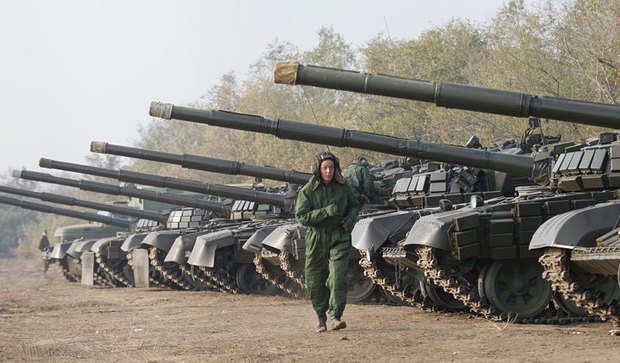
However, a hint at the existing conflicts in other parts of the world and their consequences, which was dropped by the Russian representative, can be considered effective: "If the International Court finds Russia guilty, what should be done about other countries which, for example, are engaged in the warfare in Syria?"
Crimean issue
The hearing on the violation of the International Convention on the Elimination of All Forms of Racial Discrimination by Russia was no less controversial and emotionally tense.
In this case, the Russian delegation did not dispute the applicability of the convention, believing that the consideration of this law by the court "in the Russian territory [was] a good sign". However, it insisted that Russia did not violate the convention.
The Russian side argue that, according to the constitution, there are three state languages in Crimea, "however, no-one wants to learn Ukrainian".
Everything is allegedly "in order" with the rights of Crimean Tatars. Russia, they said, is only fighting against radicals and terrorists and "this has nothing to do with ethnicity". The Russians said they banned the Majlis [also Mejlis, the Crimean Tatar self-styled government] because some members of this body were part of Hizb ut-Tahrir banned in Russia.
The Ukrainian side said that the Russian delegation was quoting collaborators who are not representative of the Ukrainian nation whereas Majlis enjoys international recognition.
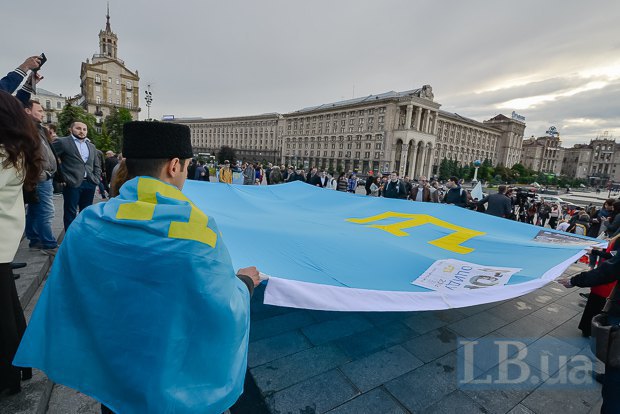
Legal interest
Experts interviewed by LB.ua share an opinion that it will be a difficult litigation.
First, because it is the first time that the International Court of Justice is considering a violation of the International Convention for the Suppression of the Financing of Terrorism.
Second, the court in The Hague is traditionally trying to dodge issues involving political aspects and does not want to burden itself with extra work. However, this time it cannot treat the case superficially or turn a blind eye on the arguments of Ukraine as it would be too risky in the current geopolitical conditions.
"Shadow of doubt"
For Russia, this trial carries serious reputational risks. Even in the worst-case scenario (if Ukraine loses in court), Russia will still get the jitters for 2.5 years. Now its representatives are trying to soothe themselves by recalling that the USA once lost in court to Nicaragua and never carried out the ruling. However, the geopolitical situation at the time was different from what we have today. And Russia is not the USA at all.
It is noteworthy that Russia itself is not so sure about its victory in court hearings either.
First, a member of the Russian delegation, Roman Kolodkin, is trying to walk out of the Ukrainian issue, he has already applied for the post of a judge with the International Tribunal for the Law of the Sea where boards will be held in June.
Second, a judge of the International Court of Justice representing Russia, Kirill Gevorkyan, recused himself from hearing the case (he is temporarily replaced by Russian national Leonid Skotnikov).
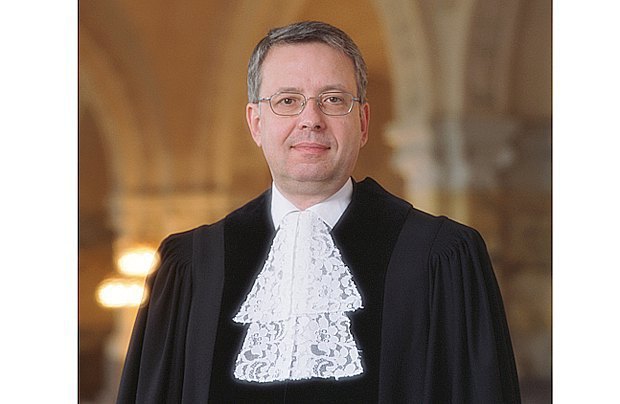
International courts as an important factor in Ukraine's domestic and foreign policy
For Ukraine, this (and other, yet planned legal actions) is an important factor in the country's domestic and foreign policy. Not to lose them, Kyiv should act now to avoid making steps which could empower Russia's arguments in the future.
For example, it is necessary to block various initiatives (in parliament, the central and local authorities) aimed at driving the interconfessional, language or other wedge deeper among Ukrainians.
Also, all Ukrainian government offices should "play as one team". For example, over the year the Justice Ministry has given no response to the Russian allegations of doctoring the photos (tank numbers) presented at the International Court of Human Rights, which allowed the Russian delegation to say that their position is correct.
As for foreign policy, we cannot do without the information and educatory efforts both by our diplomats and representatives of civil society: political pundits, experts or journalists, who will need to explain and support the Ukrainian position.
It is obvious that no-one in the West believes there are "fascists" or "junta" in Ukraine. But it should be explained everywhere frequently and profoundly that the occupation of Crimea and the subsequent war in Donbas is not a "civil war" at all and, even more so, a consequence of the Euromaidan, but a part of the Russian plan to retain Ukraine in the orbit of its influence.
"To prevent Ukraine's entry into the EU and NATO is the absolutely solid plan of Putin, he is 120 per cent loyal to it and uses all possible means to reach this goal. First, Putin annexed Crimea, thus creating an unsettled territorial dispute in Ukraine. It is for this reason that Ukraine cannot enter NATO already. Later, Putin chose the path of internal destabilization in eastern and southern Ukraine, hoping that some regions between Luhansk and Odesa will de facto be controlled by Moscow. So there can be no discussion on the true European integration of Ukraine," Russian political analyst Stanislav Belkovskiy is confident.
The same goals were repeatedly confirmed by Moscow's henchmen in Donbas. "Donbas and Crimea are the nether parts by which we hold Kyiv to make sure that it does not even think about entering NATO or Europe," one of Russian collaborators, "the people's governor of the DPR", Pavel Gubarev [Pavlo Hubarev], explained the goals of the "Russian spring".
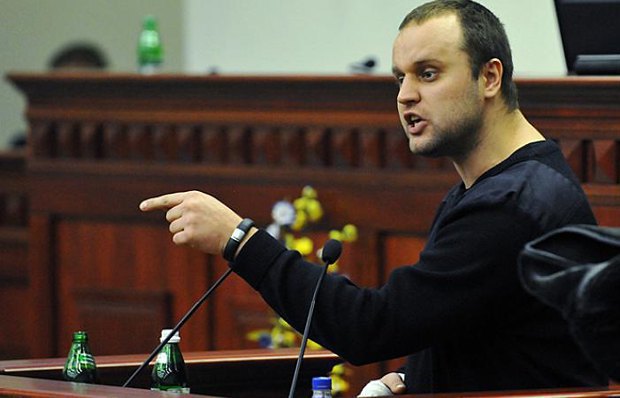
By the way, similarly, Moscow has recently been planning to derail Montenegro's accession to NATO, having plotted a coup d'etat there and even the killing of the prime minister. Only thanks to the joint efforts of the West and local authorities, which learned the Ukrainian lesson, did it become possible to avoid a new war in the Balkans. Albeit temporarily.
It should be clearly understood that because of the unfavourable foreign situation (Russia has become "toxic", it is dangerous to have affairs with it), the Kremlin will focus on resisting a pro-Ukrainian court ruling by acting inside Ukraine and creating conditions which could weaken the Ukrainian defence.
Russia will seek to export its "toxicity" to Ukraine. These actions are meant to show that this is an allegedly failed state which is incapable of keeping order and which is ruled by intolerance, extremism, lawlessness and chaos.
For this, it is likely to use the whole arsenal of means for provoking internal conflicts: interethnic (between Ukrainians and Poles, Ukrainians and Hungarians, and so on) and interconfessional (between the Ukrainian Orthodox Churches of the Kyiv and Moscow patriarchates, Ukrainians and Jews, and others). Considering a recent series of terror and sabotage acts (the killing of ex-MP Denis Voronenkov in central Kyiv, the grenade attack on a Polish diplomatic office, the arson at the arms depot in Balakliya and others), one cannot rule out even the radical options of putting influence on the participants in the legal action.
Therefore, we should be prepared to repeal the Kremlin's attacks from all sides, while the battles on the "legal front" promise to be no less fateful.








